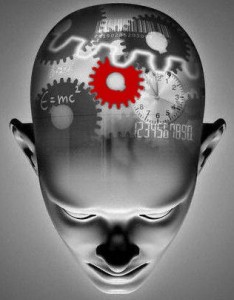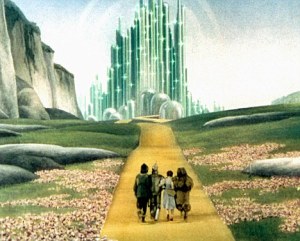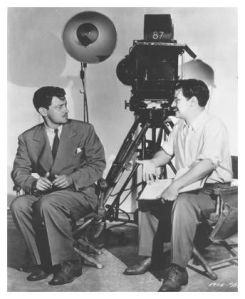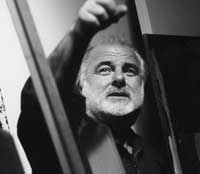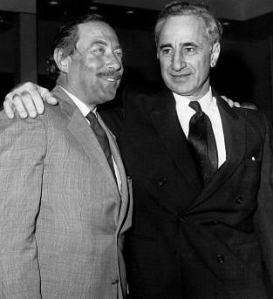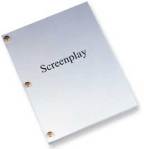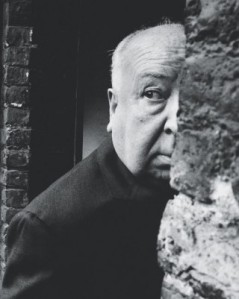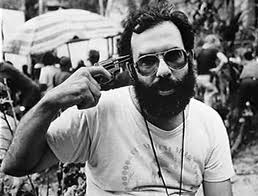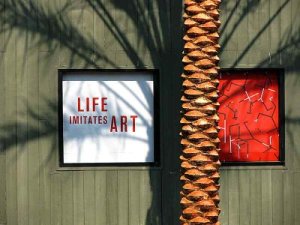The spark of inspiration is one of the most beautiful, yet fleeting, emotions; yet, without cultivation will disappear as quickly as it arrived.
in-spi-ra-tion
-noun
1. an inspiring or animating action of influence.
in-spire
-verb
1. To inhale.
2. The drawing of air into the lungs.
3. To breathe life into.
I love those latter definitions. I’m sure you recall being struck with an epiphany, which is almost immediately accompanied by a quick, deep inhalation. The euphoric surge of energy driving the body and mind to act.
…You might even tell your friends about this new change in your life.
…The next day you could still be thinking about that stroke of genius that could change your life forever. Won’t that be great?! Yet it’ll have to wait til tomorrow to because today you have to attend to more important matters.
…No worries. The idea’s golden; there’s no way it can escape your mind.
 Of course by then the spark is gone. Just as soon as you inhaled to receive this epiphany, so did you exhale to release it.
Of course by then the spark is gone. Just as soon as you inhaled to receive this epiphany, so did you exhale to release it.
Using the match analogy, as soon as you inhale the match is struck. You have moments to do something with it, to capture it, before its extinguished. Or else your own exhalation blows it out.
How do we prevent that spark from dying out…?
The answer is “Turn Inspiration Into Dedication.”
What is Dedication…?
ded-i-ca-tion
-noun
1. To devote wholly and earnestly, as to some person or purpose.
(…or apparently its a view of a lighthouse at sunset…?)
For me, again, I like to use the match lighting a candle analogy. Even when you’re match goes out you have a fresh candle that will last much longer.
Ways to Create Dedication
STEP 1) Start While Inspired.
STEP 2)Write Down Your Idea, Brainstorm. and Research.
STEP 3) Write a Plan of Action.
STEP 4) Share the Plan with Someone.
STEP 5) Execute the Plan!
…And I want to explore three different ideas that each step could be applied to…
IDEA 1: “I’m going to Quit Smoking.”
IDEA 2: “I’m Going to Write a Screenplay.”
IDEA 3: “I Need to Make Amends With Someone.”
…and here we go…
STEP 1) Start While Inspired
 For Chrissakes, don’t wait to do Step 2 in any category. Do something- NOW! Just by turning inspiration into initiative you have used your match to light your first candle- we’ll call it the Initiative Candle. Had you waited a month, a week, even a day could mean you allowed the match to burn out, losing the spark of inspiration forever. Now that you have this candle, know that it will burn out eventually as well; so we’re applying this first step… to Step 2…
For Chrissakes, don’t wait to do Step 2 in any category. Do something- NOW! Just by turning inspiration into initiative you have used your match to light your first candle- we’ll call it the Initiative Candle. Had you waited a month, a week, even a day could mean you allowed the match to burn out, losing the spark of inspiration forever. Now that you have this candle, know that it will burn out eventually as well; so we’re applying this first step… to Step 2…
–IDEA 1) Quit Smoking
Start now!
–IDEA 2) Write Screenplay
Start now!
–IDEA 3) Make Amends
Start now!
STEP 2) Write Down Your Idea, Brainstorm, and Research
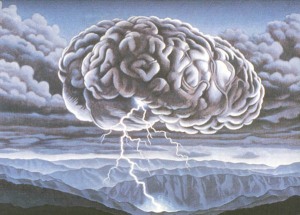 They say if you want to do something, writing it down makes it 1000% more likely to happen. There’s something so powerful about stating your idea in such a way that your mind tells your hand what to write. That process does something to you.
They say if you want to do something, writing it down makes it 1000% more likely to happen. There’s something so powerful about stating your idea in such a way that your mind tells your hand what to write. That process does something to you.
The next part of this is brainstorming everything you can think of revolving around that idea.
And finally research how others have done what you’re trying to do or anything relating to your project.
–IDEA 1) Quit Smoking
Literally write down “I am going to quit smoking today.” Write it on a note pad, on a Word document, tattoo it on your forehead. Just let that idea out of the prison of your mind and give credence to it by writing it down.
Then Brainstorm. And don’t edit. Here’s an example…
“I’m going to call my friends. gonna throw out my cigarette packs, i hate smoking. i’m gonna tell my friends. gonna google “How to quit smoking”. gonna become an advocate of not smoking. they’ll put posters up of me as anti-smoking campaign. i hate that my fingernails turn yellow, bad breath. not as cool as i thought. James dean died decades ago. Healthy lungs are sexy.”
I’ve never been a smoker so I’m speculating here. But you get the point. If I was a smoker but didn’t know how to quit I’d probably do what i said in my Free-Think and google “How to Quit Smoking”.
–IDEA 2) Write Screenplay
Write the title if you have it; the log-line if you know it. But don’t get stuck if you don’t know. Just write.
When I work on my screenplays, every time I sit down I open up the notebook for whatever project I’m working on, I click on the “Free-Think” tab and I brainstorm (without editing) in a similar way that I just did for the “Quit Smoking” brainstorm. I do this for about 15 minutes or so. And I often will make it about particular obstacles I’m working out. For instance…
“What does this character want? He’s looking for his daughter. But why does he ned to find her? What is his goal? why is she gone. she went missing cuz she had to find out for herself why he did what he did. and now he has a drive- not only to find her but to redeem himself in his daughter’s eyes…”
…for 15 minutes. The point is to open the flood gates. A lot of people can’t write because they sit in front of their computer, open up Final Draft and don’t know where to begin. This “Free-Think” is one of the basic things I do in my craft every day. And I use it for story, for dialogue, or just as a way to open up my the channels of my mind.
–IDEA 3) Make Amends
Sure, you can write down who you want to make amends with, but honestly, for this kind of idea I’d skip this step.
STEP 3) Write a Plan of Action
 This can be key to knowing what to do. This is like creating a roadmap for yourself. Without it, the whole process becomes nebulous.
This can be key to knowing what to do. This is like creating a roadmap for yourself. Without it, the whole process becomes nebulous.
–IDEA 1) Quit Smoking
Again, I cheated on this one. I just googled “How to Quit Smoking”. The only thing I’d add is giving yourself deadlines for each of these steps. And don’t feel stuck to one way of executing your plan. Research more. Find what works for you. But commit to something!
–IDEA 2) Write Screenplay
Decide that you want your first draft written in, say, 3 months (this might change but give yourself a goal).
Month 1: Research, notes and brainstorming
Month 2: Outlining story and writing treament.
Month 3: Write screenplay.
This, to me, is a really short turnaround but lets go with it. Now lets break down the 3rd month into 4 weeks.
Week 1: Write Act 1.
Week 2: Write Act 2A.
Week 3: Write Act 2B.
Week 4: Write Act 3
With this as my guide, I have something to keep me accountable. I can gauge where I am in the process. I have to say I don’t always do this- but when I do I get shit done!
–IDEA 3) Make Amends
Again, I think we can skip this step for this category.
STEP 4) Share the Plan with Someone
 Nothing keeps you more accountable than a trusted friend whom you ask to keep you accountable.
Nothing keeps you more accountable than a trusted friend whom you ask to keep you accountable.
–IDEA 1) Quit Smoking
This step is actually covered in the Smoking link I found. Its very important obviously but its not everything. I have friends who say they’re going to quit smoking. They tell everyone, tricking themselves into thinking they’re taking action. The statement is usually made while they’re puffing their “last cigarette”.
(I don’t mean to be insensitive. I haven’t had to deal with it personally- I’m just observing. But I respect it can be very difficult and painful to quit.)
–IDEA 2) Write Screenplay
Tell someone your idea. Your spouse, your friend. You have a writer’s group…? A mentor…? Tell them about it. Fuck protecting your ideas (see previous blog: “Protecting Your Ideas: Is it a Good Idea?”). You need to keep your ideas flowing so you can execute your script.
IDEA 3) Make Amends
Sure, you can tell someone about your plan to make amends with someone else. Maybe you need advice on how to approach it. More than likely you know what to do and you just need to go on to the last step.
STEP 5) Execute the Plan!
 Now you just have to do it. No excuses. Just do the plan! Hurry! Before you lose the inspiration. Ideally, the action of dedication will keep spreading the flames. By now your original match has long burned out but you have 4 candles burning.
Now you just have to do it. No excuses. Just do the plan! Hurry! Before you lose the inspiration. Ideally, the action of dedication will keep spreading the flames. By now your original match has long burned out but you have 4 candles burning.
Now imagine combining them into a torch. The torch is a large powerful flame that represents your plan, though can still be extinguished if neglected.
Your candles long blown out by now, all you have is this torch waiting to reach its destination…
And like the Olympic games you pass the torch, run to the next stop, and pass the torch again, once for every step in your plan that you accomplish. Soon the torch reaches its destination where the flame blazes throughout the entire competition. What a wonderful image: your idea being set ablaze when put into action.
IDEA 1) Quit Smoking
This seems like an ongoing process that gets easier with time. Its one decision that has to be made every day, every minute until you don’t think about it any more.
IDEA 2) Write Screenplay
To me it is so rewarding to clock each step of the writing process. It connects effort with reward in such a motivating way. You know you’ll be rewriting after the first draft is done. But that’s not what this first stage is about. As long as you’re not just writing words on a page and you’ve done your homework, there are few things more gratifying to me than completing a screenplay.
IDEA 3) Make Amends
This may seem like the hardest yet may be the easiest of the three. I thought it was important to include because its just a phone call. Not everything requires these other steps to get done. Whether its making amends, making plans with your wife, or making a reservation, some things just require immediate action.
 For suggestions on how to spark that initial match you can take a look at my previous blog on ideas. In my research and personal experience it seems opening your network of association possibilities is the best thing you can do. As Kazan would suggest, live life, go see movies, drink at a coffee shop, dance, sing, play, read, fuck, build, destroy…
For suggestions on how to spark that initial match you can take a look at my previous blog on ideas. In my research and personal experience it seems opening your network of association possibilities is the best thing you can do. As Kazan would suggest, live life, go see movies, drink at a coffee shop, dance, sing, play, read, fuck, build, destroy…
You never know what’s going to inspire that first match. But when it happens- and it will happen- make sure you do something with it!






